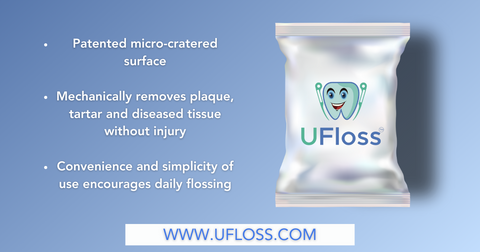The Link Between Oral Health and Systemic Diseases
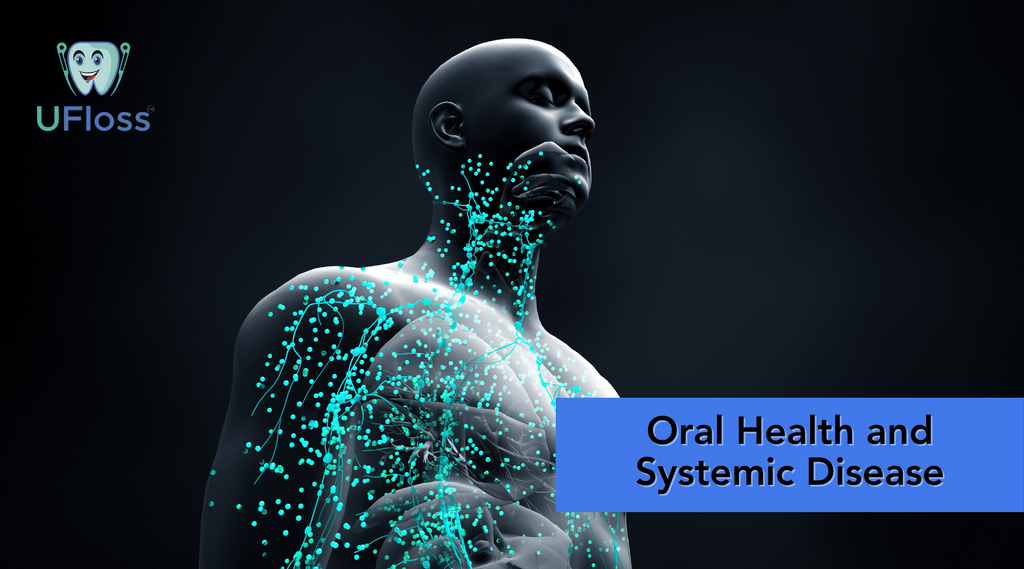
Unlocking the Connection: How Oral Health Influences Systemic Well-being
Oral health, often overlooked but undeniably vital, is the gateway to our overall well-being. This connection between our mouths and the rest of our bodies, known as the oral-systemic connection, plays a pivotal role in our physical, psychological and social health. This article investigates the intriguing and undeniable ties that bind our oral health to various systemic diseases, shedding light on the profound influence each has on the other.
Oral-Systemic Connection: A Crucial Bond
Your mouth isn't an isolated entity; it's an integral part of your entire body. However, an unusual yet unfortunate separation often occurs between the dental and medical fields, causing some to mistakenly believe that oral health concerns are confined solely to the mouth. The truth is far from it – you can't achieve total health without a healthy mouth.
"The mouth is the gateway to the body, and there is an important two-way connection. This is called the oral-systemic health connection."
This connection underscores that oral health influences your overall well-being, while systemic health, encompassing various diseases and disorders, can significantly impact your oral health. These two realms are intricately linked, making it impossible to consider one in isolation.
The Perils of Poor Oral Health
So, what exactly is poor oral health? It encompasses the presence of active dental diseases and multiple risk factors for dental problems. Dental diseases, such as cavities (tooth decay) and gum disease, stem from bacterial infections. These insidious bacteria thrive within dental plaque, the sticky buildup that accumulates on our teeth, especially between dental visits.
- Cavities: Tooth decay, scientifically known as caries, is one of the most prevalent infectious diseases worldwide. The bacteria behind cavities reside in dental plaque and produce acids as they feed on sugar from our diets. These acids weaken tooth enamel, making it vulnerable to decay.
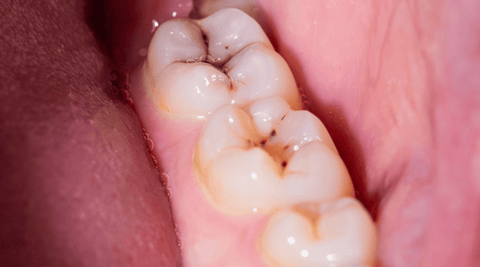
- Gum Disease: Officially termed periodontitis, gum disease arises when these bacteria generate toxins that infiltrate gum tissues, leading to inflammation. It's not just an infectious disease – it's an inflammatory one too. This can be prevented by flossing (twice per day!) or by the use of interdental brushes.
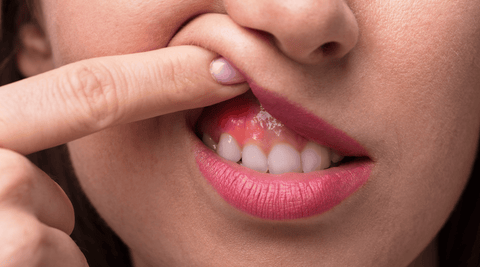
"The mouth is the gateway to the rest of the body. If your gums bleed, it's not just a sign of poor oral health – it might signal problems in other areas of the body."
The Ripple Effect of Poor Oral Health
Poor oral health isn't a localized issue. It affects various aspects of your life, both in your mouth and throughout your body. You might be aware of the excruciating pain associated with dental problems, such as toothaches, but not all dental diseases manifest with noticeable symptoms. Some cavities don't cause pain, and gum disease can stealthily advance until teeth become loose or fall out.
When teeth are lost, the consequences are far-reaching. It not only diminishes your chewing force but also imposes extra stress on the remaining teeth, causing them to crack, shift or lead to receding gums. There's also the cosmetic aspect – tooth loss can affect your smile and facial appearance. Moreover, poor oral health can contribute to digestive problems, as inadequately chewed food particles reach the stomach.
However, it doesn't stop there. Infectious and inflammatory diseases originating in the mouth can transcend its boundaries and affect other areas of your body. In extreme cases, dental infections can spread to the airway, bloodstream or even the brain, with the potential to be life-threatening.
"Significant associations between oral health status and a number of systemic diseases have been established, including, but not limited to, cardiovascular diseases, Alzheimer’s disease and dementia, obesity, diabetes and metabolic disorders, rheumatoid arthritis, and several cancers."
The Systemic Impact of Poor Oral Health
While it's well-established that maintaining good oral health is crucial for a bright smile and healthy teeth, the implications of poor oral hygiene extend far beyond your mouth. Researchers have uncovered significant links between oral health and systemic diseases, shedding light on the intricate connection between your mouth and the rest of your body. These connections can have serious implications for your overall health.
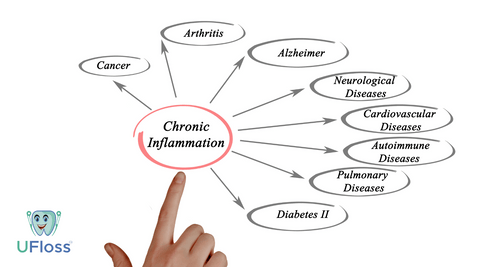
Chronic inflammation in the oral cavity is a red flag that can lead to systemic inflammation throughout your body. The mouth is rich in blood vessels and tissues, making it a prime site for bacteria to enter the bloodstream. This inflammation can elevate the levels of inflammatory markers in your blood, impacting your immune response and increasing the overall disease burden on your body.
Cardiovascular DiseaseThe relationship between oral health and cardiovascular disease has garnered significant attention. Studies have shown that the bacteria involved in gum disease can travel through the bloodstream, potentially contributing to the development of atherosclerosis (narrowing of the arteries) and increasing the risk of heart disease. Poor oral health may lead to systemic inflammation, which is a well-known risk factor for heart-related issues.

The relationship between diabetes and periodontal disease is bidirectional, creating a complex interplay. Diabetes can affect oral health, with elevated blood sugar levels impacting the gums and making them more susceptible to infections. Conversely, periodontal disease can negatively affect glycemic control, leading to higher HbA1c levels. Therefore, managing oral health is vital for individuals with diabetes to control their blood sugar levels effectively.
Organ FunctionPoor oral health can put added stress on vital organs such as the liver and kidneys. Chronic inflammation stemming from oral infections can potentially affect the proper function of these organs. Inflammation disrupts the body's immune responses and its ability to heal, impacting the overall health of various organ systems.

Recognizing the intricate relationship between oral health and systemic well-being emphasizes the importance of maintaining good oral hygiene practices. Proper brushing techniques, a balanced diet and regular dental visits are not only fundamental for preserving a radiant smile but also essential for safeguarding your physical, psychological and social health. This oral-systemic connection underscores the importance of holistic health practices that benefit both your mouth and your entire body.
Benefits of Good Oral Health
The investment in maintaining good oral health is well worth the effort. Not only can it prevent the consequences of poor oral health that we've explored, but it also brings numerous benefits across different dimensions of your life.
- Economic Benefits: The cost of quality at-home oral care products is relatively low, especially when compared to the substantial savings in dental care costs over a lifetime. It's more cost-effective to prevent dental problems through consistent maintenance than to fix them once they've occurred.
- Social Benefits: Often a result of poor oral health, bad breath can have a significant impact on your social life. On the contrary, a healthy smile enhances your confidence, appearance and self-esteem. A beautiful smile is often associated with being friendly, happy and hygienic.
- Psychological Benefits: The psychological implications of poor oral health are multifaceted. Dental issues can lead to low self-esteem, causing individuals to hide their smiles. This can result in others perceiving them as unfriendly or unkind, creating a cycle of insecurity, embarrassment and potentially leading to depression and social anxiety. On the flip side, a smile can trigger the release of endorphins, acting as an antidepressant.
- Physical Benefits: A healthy mouth promotes a healthy body. Good oral health allows you to enjoy a balanced diet without avoiding specific foods due to temperature or texture. Your teeth contribute to the initial stage of digestion by properly chewing food. Moreover, a healthy mouth means your immune system isn't preoccupied with fighting inflammation and infection, giving you better defenses against other health issues, including colds, sinus infections, the flu, and even COVID-19.
Maintaining Good Oral Health
So, how can you ensure you maintain good oral health and reap these benefits? The principles are simple but essential, with each of them playing a critical role in preserving your oral well-being.
- Good Home Care: Dental plaque is the culprit behind most dental problems, accumulating on your teeth every day. The key is consistent plaque removal through proper brushing and flossing techniques. That's where UFloss comes in, safely and effectively removing plaque to prevent harm before it can begin. If plaque isn't removed every day it will harden into tartar, which cannot be removed at home. This can be especially problematic for kids with braces, given their dietary habits and their general avoidance of flossing altogether.
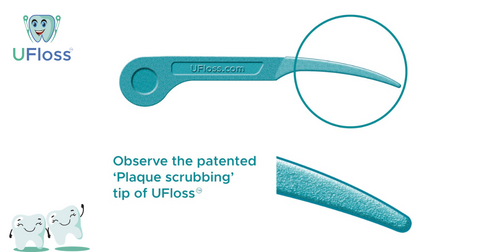
"If you need help with your plaque removal technique, ask your dentist or dental hygienist at your next visit."
- A Balanced Diet: What you eat impacts the pH of your mouth, influencing your risk of developing cavities. An acidic mouth makes it easier for bacteria to breach enamel. A balanced diet is essential, limiting acidic and sugary foods and focusing on calcium-rich foods for strong teeth. Drinking water and chewing sugar-free gum stimulates saliva production, helping your mouth combat disease and plaque buildup.
- Consistent Dental Visits: Dental complications often remain asymptomatic until they demand extensive, expensive treatment. The only way to intercept dental problems early is by maintaining regular visits with your dentist. Professional cleanings and preventive care can remove plaque and tartar buildup and identify any warning signs of potential dental issues.
- Practice Overall Wellness: Ensuring the health of your entire body is essential, not just your oral well-being. Certain conditions can result in acid erosion, posing a risk to your teeth, possibly leading to damage or tooth loss.
Discover the Power of UFloss
UFloss™ is your essential companion on the journey to maintaining optimal oral health. Its advanced design and patented micro-cratered tip ensure a deep and effective clean, reaching areas that traditional flossing might miss. With UFloss, you can say goodbye to plaque buildup, reduce the risk of gum disease and enhance your overall oral hygiene. Incorporate UFloss into your daily routine and enjoy a brighter smile while safeguarding your systemic well-being.
Your oral health is intrinsically linked to your systemic health, creating a powerful interconnected relationship that affects your overall quality of life. Taking care of your oral health doesn't just give you a beautiful smile; it safeguards your well-being and has far-reaching effects on your physical, psychological and social health. Invest in your oral health, and you're investing in a healthier, happier you.
Now, it's your turn to take action and prioritize your oral health. Don't compromise on your oral health – make UFloss your trusted partner in the fight against the perils of oral health neglect.
Shop Floss today. Your smile and your body will thank you.


